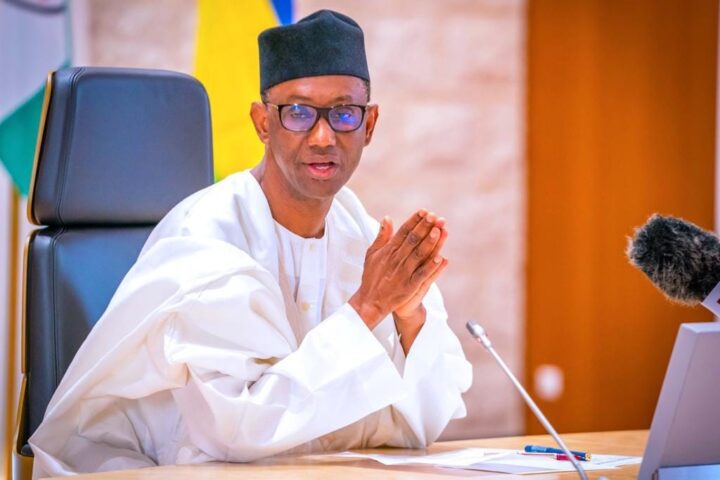A POWERFUL Nigerian delegation led by National Security Adviser, Malam Nuhu Ribadu, met with U.S. Congressman Riley M. Moore in Washington, D.C., on Wednesday to address escalating allegations of religious persecution and terrorism in Nigeria, a narrative that has gained significant traction in recent weeks within American political circles.
News Point Nigeria reports that Congressman Moore, one of the U.S. lawmakers tasked by President Donald Trump to investigate alleged genocide against Christians in Nigeria, described the engagement as “frank, honest, and productive.”
He said the meeting focused heavily on religious violence, counterterrorism operations, security assistance, and the protection of vulnerable communities across the country.
The Nigerian delegation included key security and diplomatic officials: Minister of State for Foreign Affairs, Bianca Ojukwu; Inspector General of Police, Kayode Egbetokun; Attorney General of the Federation, Lateef Fagbemi, SAN; Chief of Defence Staff, General Olufemi Olatunbosun Oluyede; and Chief of Defence Intelligence, Lt. Gen. E.A.P Undiendeye. Senior officials from the Office of the NSA and Nigeria’s diplomatic mission in the U.S. were also present.
In a statement shared on X (formerly Twitter) seen by News Point Nigeria, Moore said he used the meeting to deliver a blunt message: the United States expects Nigeria to take concrete steps to end violence targeting Christians.
“I made it crystal clear that the United States must see tangible steps to ensure that Christians are not subject to violence, persecution, displacement, and death simply for believing in our Lord and Savior Jesus Christ,” he stated.
Moore reaffirmed the U.S. government’s readiness to support Nigeria in combating Boko Haram, ISWAP, and violent armed groups, particularly those responsible for attacks in the Northeast and Middle Belt.
“We stand ready to work cooperatively with the Nigerians to help their nation combat the terrorism perpetrated by Boko Haram, ISWAP, and Fulani militants against their population,” he added.
The meeting came amid a growing diplomatic storm following Nigeria’s redesignation earlier this month as a Country of Particular Concern (CPC) by President Trump, a status reserved for nations accused of severe violations of religious freedom.
The controversy intensified after a United Nations event on alleged Christian persecution, where U.S. rapper Nicki Minaj was invited to testify against Nigeria. Nigerian diplomats were excluded from the meeting, prompting protest from the country’s Mission to the UN.
Chargé d’Affaires Syndoph Endoni condemned the exclusion, saying it amounted to “shaving our head in our absence.”
Additionally, Congressman Moore has repeatedly challenged President Bola Tinubu’s assertion that Nigeria does not encourage religious persecution, insisting that realities on the ground do not support the President’s claim.
Moore had on Tuesday condemned the abduction of schoolgirls from Government Secondary School, Maga, in Danko-Wasagu Local Government Area of Kebbi State, where 25 students were kidnapped and a vice principal was killed.
He called for prayers for the victims, further amplifying U.S. concern over insecurity in Nigeria.
During the Washington meeting, Nigerian officials will reportedly outline the government’s counterterrorism challenges, the complexity of protecting civilians across vast territories, and ongoing efforts to work with international partners.
Despite these explanations, Moore said the U.S. would continue to monitor the situation closely and expects Nigeria to accept offers of cooperation.
“The Nigerian government has the chance to strengthen and deepen its relationship with the United States,” he said.
“President Trump and Congress are united and serious in our resolve to end the violence against Christians and disrupt and destroy terrorist groups within Nigeria.”
As of press time Wednesday night, none of the senior Nigerian officials in the delegation including Ribadu, Egbetokun, and the Minister of State for Foreign Affairs had issued an official statement regarding the visit.







